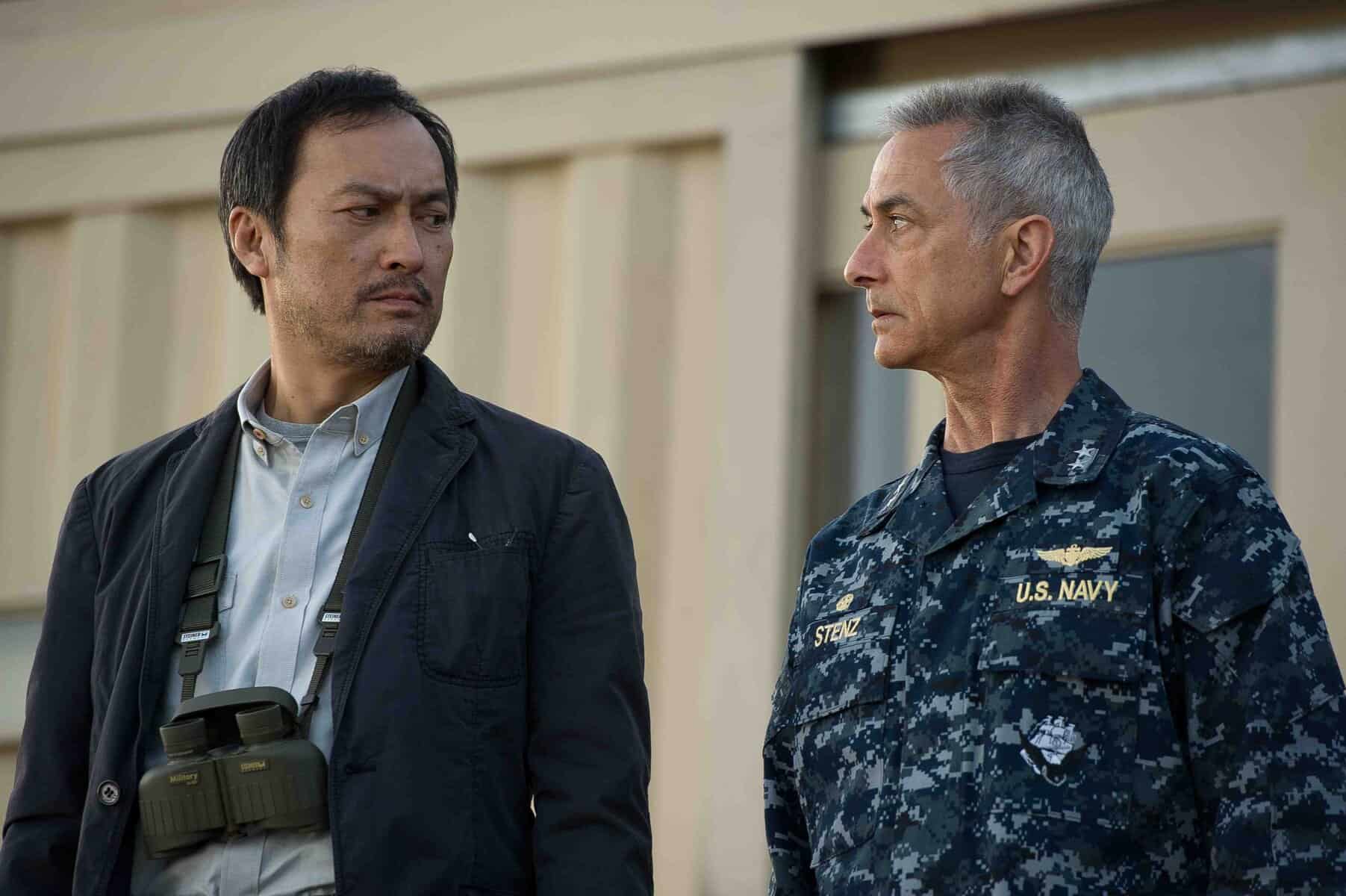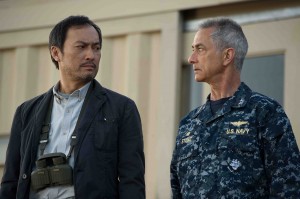Ken Watanabe was very excited to talk about a very large lizard. The Oscar-nominated Japanese superstar couldn’t wait to share his enthusiasm about his role in Hollywood’s latest attempt to remake “Godzilla,” and seeing the movie in 3D, which was an even bigger experience than he expected. Note: Watanabe switches between using “Gojira” – Godzilla’s actual name in Japan and also used in the new movie, and the US-standard “Godzilla.” We followed suit.
Ken Watanabe: I saw the movie last night in 3D!
So what did you think?
KW: {Laughs} It was a different kind of feeling!
What was it that drew you to take part in this remake of the iconic 1954 film?
KW: I did not think about it being a remake movie. I didn’t think ‘iconic movie.’ I wasn’t impressed about making a Godzilla movie. Why did we need to make a Godzilla movie now? There are so many Godzilla movies that we have; there are 28 in Japan and one remake from Hollywood. We still have some kind of fear of nuclear power. Three years ago in Japan, we had so much tough experience; the collapse of the {Fukushima} nuclear power plant due to a major earthquake. Then, of course you know Gojira was born by the nuclear tests. After 60 years, the fear has not changed, it’s still the same. I needed to rethink about how can I stop the use of nuclear power in the next century? I needed to try to make this film. I needed to rethink about that.
Gojira has a lot of meaning to the Japanese people. Do you feel this version represents the same things? Can that message translate to American audiences?
KW: I don’t think he needs to be translated. This is the same metaphor we have. When I saw the movie, I got so excited whenever Godzilla lets out his roar *imitates Godzilla roar*. Really, really big and strong, but with the sadness. To me, it almost feels like Godzilla is scolding us for humanity’s foolishness. Then I thought Godzilla is the symbolism of the human conscience.
Humans are growing up the economy, and the society and the science; everything is just growing up, but somehow we lost a lot. We need to recover nature, believe in nature. Godzilla is like the power of nature that we cannot control. We cannot understand his feelings, never. But I believe something, I trust nature. It’s the same metaphor we have in any country.
Were you a fan of the Gojira films growing up? Did you have a favourite monster?
KW: My favorite creature is Gamera. {Laughs} Most people fight over Gojira versus Gamera. Gojira has a really special element. Gojira changes between hero and villain; it’s back and forth. There isn’t any other creature that has that special element; that’s what makes Godzilla really special.
The original Godzilla films featured some amazing actors, did you take any cues from those past performances for your character?
KW: I just imagined about Dr. Serizawa, but I did need to take too much from those performances – {my character} is a little bit modern. My {character’s} father was a survivor of the atomic bomb in Hiroshima, because of that background he wound up studying nuclear energy and nuclear plants and finding the Muto. In the process discovered the existence of Godzilla, but he’s struggling little bit with the Muto feeding off nuclear power and growing up and hatching as an adult. He needs to stop nuclear power energy or wants to use it in hopes of doing something meaningful for mankind. He’s a really struggling scientist. Then he finds out how nature is so powerful in Godzilla. He still growing up during the story.
This movie is left pretty open ended, but in Japan, Gojira has the Shōwa, Heisei and Millennium series, so a sequel is almost expected. If there was a sequel, would you come back if asked?
KW: {Laughs} Hmmm… Yeah, if I like the story, of course I’d do that.
You’ve made this film and last year starred in an amazing remake of Clint Eastwood’s Unforgiven. Do you think there is such a thing as a film that should not be remade?
KW: No, I don’t think so. A good movie has a great theme. If the basic things it changed what the country or the culture or the era then yeah, as long as they keep to the theme than any person can try that.
We asked the legendary Japanese actor, Tatsuya Nakadai how he and Toshiro Mifune achieved their very masculine, larger-than life onscreen presence. Nakadai-san said it was because of the actors he watched growing up. You possess a very similar quality, how did you achieve that presence?
KW: There are so many great actors in Japan that I saw and I’d watch behind them and then I stole a lot. Watching their movies, or watching them backstage, or off-camera. There was so many moments I got.
Can you name some of those actors that you studied and stole from?
KW: Shintaro Katsu {Zatoichi, Hanzo the Razor}, he’s my favorite actor, and Tsutomu Yamazaki {High and Low, Departures}
You are the most successful Japanese actor starring in Western films. Do you see a time coming soon when an Asian actor will be a full-fledged romantic lead in a US film?
KW: The time has come, but I’m so old. {Laughs}
-The Lady Miz Diva Vélez

